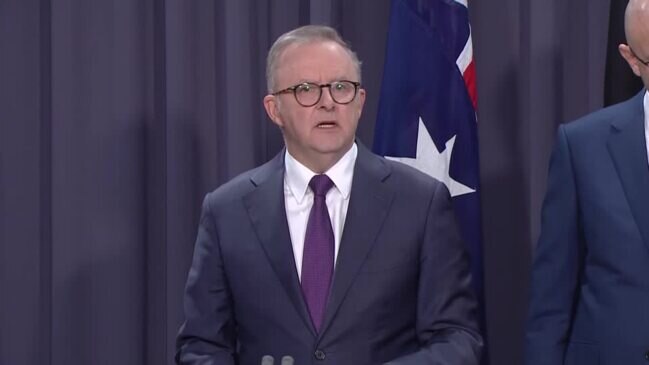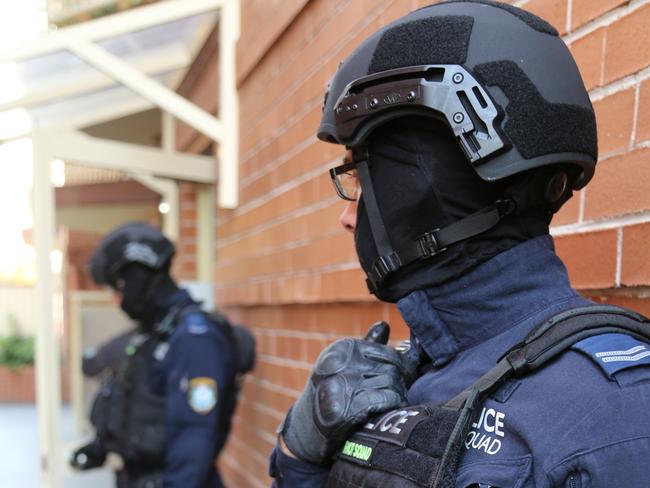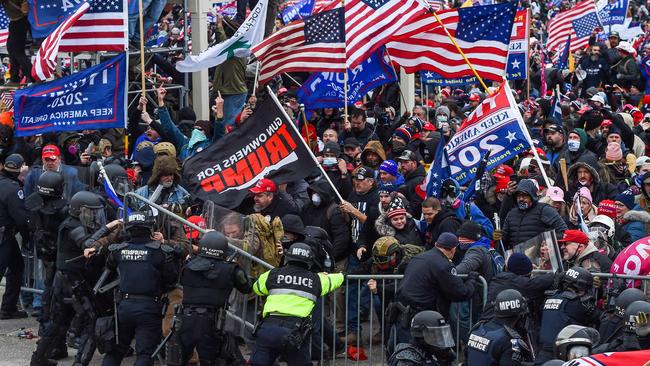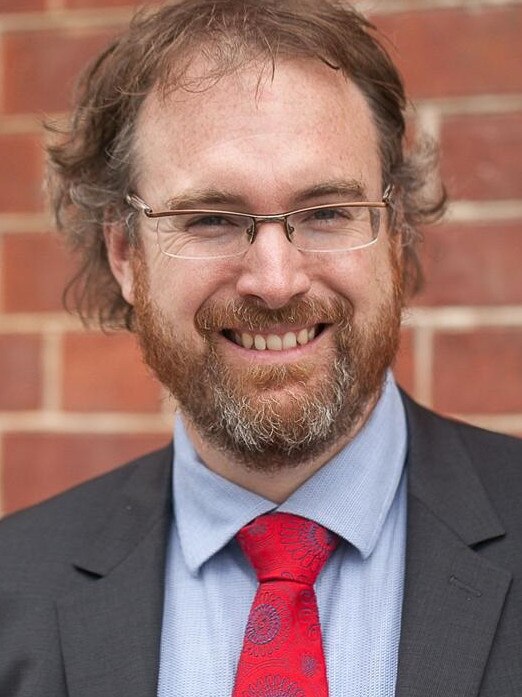Why the AFP sees threat of sovereign citizens rising in Australia
The nation’s top cops are becoming increasingly concerned of an Aussie uprising among far-right extremist groups, warning coronavirus restrictions “significantly shaped” their resurgence.

National
Don't miss out on the headlines from National. Followed categories will be added to My News.
Exclusive: The threat of fixation, violence and society destabilisation by Australia’s sovereign citizens fuelled by far-right extremism is rising as they “contest government legitimacy”, authorities have warned.
Sovereign citizens a few years ago were perceived largely as fringe dwellers wanting to live off-grid largely in regional Australia or extreme libertarians rejecting civil laws down to the odd traffic fine.
But their rise and creation of anti-authority “assemblies” and declared mini-states has prompted ASIO and the Australian Federal Police to warn government they now carried an “underlying capacity to inspire violence”, particularly as they merge with more known extremist groups.
There has been a noted rise by Australia’s magistrates and judges of orchestrated campaigns to stymie the judiciary by clogging the courts with bogus legal arguments, some fuelled by law firms specifically spruiking how to not accept society rules and laws.
No cases are ever successful, but hundreds are being heard every week in Australia and can tie up resources for three or more days.

Such is the growing threat of the movement, the watching brief now falls under the AFP’s Joint Counter-Terrorism Teams (JCTT) operating in all states in Australia.
The AFP has warned the government’s response to Covid-19 and restrictions had “significantly shaped” the resurgence of the movement which had now evolved and were “co-opting or overlapping” with patriot and nationalist groups, conspiracy theorists, anti-authoritarian groups and far right extremists.
According to a JCTT briefing, movements are becoming more organised with formal and informal leadership and assemblies connecting via social media and sharing informational support, advice, co-ordination and financial aid.
SovCits, as they are known, have been actively recruiting including tapping former police and Australian Defence Force personnel to become “sheriffs” for their self-declared assembly groups to counter authorities.
The JCTT brief states they are growing in confidence as they believe they will be vindicated once the government is “deposed”.
The AFP cites the January 6 demonstrations in the United States as to how movements can quickly mobilise against governance and good order.

“During the Covid-19 pandemic, people were spending an increased amount of time online, increasing susceptibility to conspiracy theories due to the crisis and hardening of consensus ‘radical’ perspectives,” an AFP spokesman said.
He added: “The AFP, through the JCTT, remains alert to information and intelligence that indicates any group’s propensity for or movement towards violence, including sovereign citizens groups.”
Associate Professor of Law at UniSA Dr Joe McIntyre said more recently the riots in the UK highlighted how social media can unite ideologies to spurious uprising.
While that in scale had not been seen yet in Australia, sovereign citizens were already straining local governments and the legal system, with judges now feeling “intimidated and unsafe”.
“Death threats have been made against judges and it isn’t a laughing matter,” Dr McIntyre said.
“It is easy to look at this and think ‘oh these are funny kooky arguments but there really is a dark undertone to it.

“Courts administrators are telling us this is a top five concern for them. This is significantly hamstringing them and having a huge impact on their ability to administer justice.
“It’s massively destabilising … These people tend to find the emails of registry staff and court staff and email through huge amounts of materials, so just the process is adding a huge burden on courts.”
These cases typically involve minor issues such as speeding or parking fines, driving without a licence, trespassing, or drug use.
However, because a pseudo-legal argument questions jurisdiction and cites the 1215 Magna Carta, it takes much longer for the courts to resolve these matters.
“We are getting these strange arguments being made disrupting the administration of justice on a case-by-case basis but now its gone beyond that and is starting to flood the courts with these sorts of matters,”
“But it is also happening in local governments, having impacts on health providers, having impacts on police including where they want to have court matters seeking to have subpoenas issued against police so there’s huge resourcing implications with that.
“Once they say ‘the laws don’t apply to me and I can literally do whatever I want’ it’s only a small step from someone saying I am going to disregard the laws around firearms or violent protest; it’s a half step away from violence.”
More Coverage
Originally published as Why the AFP sees threat of sovereign citizens rising in Australia




